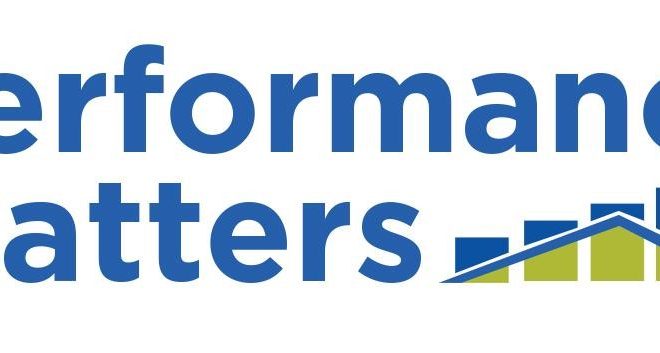Enriching history lessons with visualizations

**The Edvocate is pleased to publish guest posts as way to fuel important conversations surrounding P-20 education in America. The opinions contained within guest posts are those of the authors and do not necessarily reflect the official opinion of The Edvocate or Dr. Matthew Lynch.**
A guest post by Patrick R. Potyondy
Let’s face it: Harry Potter is awesome. But my major sticking point, the thing that just nettles me each and every time I revisit the books (and I revisit them more often than I’d like to admit), is when Hermione and the gang visit “History of Magic.” Their “teacher” (scare quotes intentional) is so boring, he’s actually dead. He didn’t even notice he died! And he just continues to drone on and on and on and, well, you get the idea.
He represents, for better or worse, the lecture method of instruction. The students are vessels; his job is to fill them up with “knowledge.” Perhaps J.K. Rowling had such a teacher in her primary school days. Perhaps she just thought he was a fun character to write. In any case, we must continue to move beyond the lecture method of teaching history. We must embrace not just digital tools but visualizations to make students engaged.
There is little doubt that writing still dominates academic history. Graduate students must write theses and dissertations primarily presented in text format. Pictures, maps, and other visualizations can certainly be part of the whole, but these are peripheral characters to the star of the play—an original amount of text. Text is great as far as it goes. And as far as it goes is too often a miniscule number of other academic specialists.
But the visual is a different medium from text. And it’s one we’re increasingly working with. David Staley points out as much in Computers, Visualization, and History. Digital visualization, he writes, can be a “main carrier of the meaningful information.”
![Visualizations, like maps, communicate information differently—and often more effectively—than text, as seen in this classic example: Harry Beck’s 1933 London Underground map.]](https://www.theedadvocate.org/wp-content/uploads/2015/06/1.LondonUnderground-300x213.jpg)
Visualizations, like maps, communicate information differently—and often more effectively—than text, as seen in this classic example: Harry Beck’s 1933 London Underground map.]
The public—and here I include students in this group—seem to wish to find that meaning and information through historical visualizations as much as, even more so, than text alone. Twitter accounts featuring “history in pictures” amass millions of followers. Slate’s popular “Vault” blog features visuals of archival finds that are a mix of the visual and textual. While scholarly historians might decry such fads, is it useful to simply lambast them, or is it more constructive to meet the public halfway, to help provide meaning and context?
A skilled teacher can make her or his lecture on the cruelties of enslavement riveting, but what would a narrative look like that presented itself primarily through pictures, maps, and graphs look like? It is one thing to stoically describe a whipping or lynching, quite another to view photographs of these events. If one aim of studying history is to better understand humanity, we’re only providing a partial view without engaging visualizations to their fullest and expanding extent.
Luckily for teachers, public digital historians have produced (and continue to) a number of excellent visual tools that students can engage with. One of my all-time favorite projects is “Hollow: An Interactive Documentary” found at http://hollowdocumentary.com/. While the phrase can be used too often, this truly is a tour de force. It is interactive and utilizes not only visuals but audio, too. It is heartbreaking yet hopeful. Through it, we connect with the people and their stories. We empathize. We understand. It presents a large amount of factual information, but in an engaging and thoughtful way.

An image from the Hollow: An Interactive Documentary
Another project I love—a book in fact—that illustrates the power of visual history is Daniel Rosenberg and Anthony Grafton’s Cartographies of Time. Asking “What does history look like?” the authors trace graphic representations of history from the 15th century forward. They remind us that only recently have academics made history into a primarily textual discipline.

Visuals have long incorporated circles and tress (and text) to depict time and space as seen here in Girolamo’s Andrea Martignoni’s “Historical map of Italy” (Spiegazione della carta istorica dell’Italia), 1721. As seen in Cartographies of Time.
Students can get in on the act, too, as active participants and not only as more passive viewers. The research paper has long been a staple of high school and college history courses. It teaches skills worth knowing. But why not add in an assignment around presenting a narrative and argument principally through visual materials? Students could craft their own projects using primary and secondary sources, and thus develop visual, organizational, research, and argumentative skills all at once.

First, an example of the type of PowerPoint slide seen all too often in teaching. Can it capture the visual reality of enslavement—the effects of whipping or the gendered violence as seen in 12 Years a Slave?
The iMovie app is only one application of many that can be used by history classes to produce projects (WeVideo and Meograph are just two others). As part of a research project (not just a paper), students can utilize a number of online archival sources and libraries for primary source material as they craft historical narratives that utilize textual, audio, and visual elements. For an example of what iMovie can do, just check out some awesome projects which were produced by an undergraduate U.S. history course at Ohio State University as taught by Professor Lilia Fernandez.
Hopefully it’s been apparent that I’m not saying visuals should replace text. Books remain magical things in and of themselves, often without incorporating hardly any visuals at all. I only suggest that maybe it’s time we nudge text a little further to one side, to share the stage with pictures, graphs, maps, film, graphic novels, and any other number of visualizations.
And after all, there’s no reason that Rowling couldn’t have had her history professor spice things up a bit for those poor Hogwarts students. Just think of the visualizations one could do with magic!
Read all of our posts about EdTech and Innovation by clicking here.
_______________________
Patrick R. Potyondy is a history PhD candidate and graduate associate at The Ohio State University with interests in Public and Digital Visual History, Modern US History, the History and Foundations of Education, Early American History, and the intersections of race, ethnicity, and nation. He has also published the book chapter “Reimagining Urban Education: Civil Rights, Educational Parks, and the Limits of Reform.”





